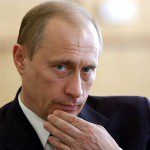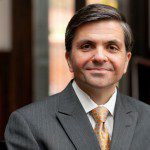I must confess that I’ve enjoyed reading some of the revelations that have emerged from the Wikileaks controversy. There is a certain deliciousness in getting information you are not supposed to have, especially when it includes catty comments about political leaders known around the world.
But the whole episode reeks to high heaven. There are several things that bother me about Julian Assange and what he did with WikiLeaks:
1. Julian Assange speaks as though he’s doing the American people a great service by revealing to them the inner workings of their government. Yet the American people deserve not to know some things. We often say that in a democracy, the people deserve to know the truth. But they also deserve a government that is capable of keeping secrets. They deserve a government that can have honest and forthright – and that means confidential – communication between its diplomats. There is no reason why the American people need to know that one of its diplomats declared that Dmitri Medvedev is the “Robin” to Vladimir Putin’s “Batman,” or that another called Kim Jong-Il is “flabby.”
Assange acts as though a people should know everything about their government, except for two things. First, and very conveniently for Wikileaks, the people do not need to know the identities of sources that reveal important information, and whose lives might be endangered by exposure. Second, and even more conveniently for Assange, the people have no right to know what would happen if Assange ever faced a justice system for the rape allegations against him. Otherwise, however, Assange seems to be of the opinion that the American people should know just about everything what transpires within their government.
But obviously there is much the revelation of which would make our government less effective. It helps crime prevention if the police are able to develop their cases in secrecy. It helps counter-terrorism if terrorist organizations do not know the many methods that are used against them. If helps our national security if we are able to develop military technologies of which our enemies know little or nothing. It helps in international affairs — just like it helps in any context where you are trying to make a thousand deals with a thousand different parties — if you do not reveal to everyone the terms of every agreement you form.
Some of the leaks reveal interesting things. The full consequences of the intelligence dump will not become clear for a long time, until it has been thoroughly searched and picked apart. But there is no purpose served, other than embarrassing the American government and throwing a wrench in its gears, by revealing confidential cables with unflattering words for foreign leaders.
It does raise an interesting issue, though: what kind of information ought to be publicly available, and what kind ought not?
2. I said that Julian Assange “speaks as though” he’s helping the American people. Honestly, however, I don’t think he cares one whit about the American people. Part of what galls about the whole situation is that Assange clearly feels great disdain for America and acts out of enmity and resentment. Assange, in glittering condescension, has taken it upon himself to educate those silly, naive Americans about how their government really functions, as though we never imagined that our diplomats assess foreign leaders, sometimes unfavorably; that our government gathers intelligence; or even that our government and military sometimes make mistakes. But there are venues and mechanisms for bringing the proper information to light, and a foreigner with no expertise or authority in the matter illegally revealing information that was illegally obtained is not one of them.
The other part that galls is that Assange seeks to gain fame and profit – and does gain enormous amounts of each – by exposing American intelligence and confidential information. As the Time interview reveals, Assange holds himself and the consequences of his actions in extraordinarily high regard. “It is our responsibility to bring matters to the public,” says Assange. But who gave him that authority? Did the American people elect him for the task?
Thoughts? What has been helpful about the Wikileaks revelations? What has been damaging? Ought Assange to be brought to justice?











